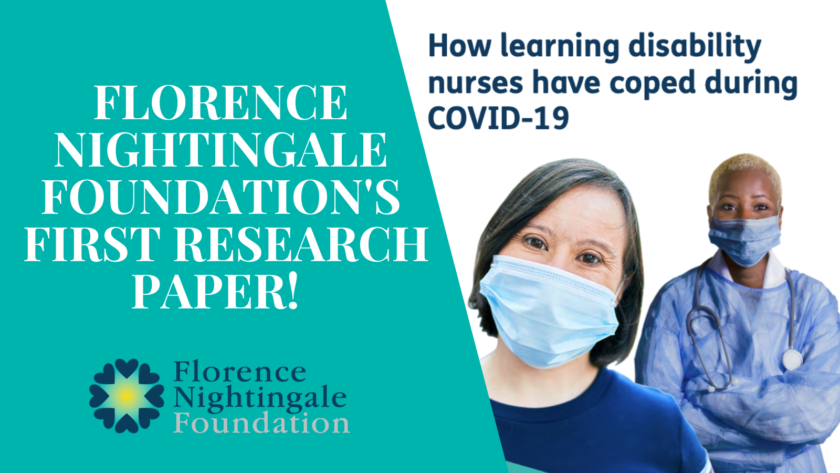
The Florence Nightingale Foundation (FNF) is delighted to publish its first piece of policy research exploring how Learning Disability Nurses overcame challenges and transformed their ways of working during the first wave of COVID-19.
The research highlights how Learning Disability Nurses turned to collaboration and creativity in a monumental effort to maintain services for people with a learning disability. The nurses were driven by a desire to maintain a sense of normality and stability for those in their care and pulled together to keep people with learning disabilities connected and safe during an intense period of social isolation.
Learning Disability Nurses were found to be in a unique situation as the first wave of the pandemic gripped the UK. Whilst normally working in the community, the nurses had to overhaul their entire service and become virtual, limiting their face-to-face care with people using their service. People with learning disabilities often rely on certain routines, social networks and distinct ways of communicating in person and these were all impacted by social distancing guidelines and the use of PPE, initially causing barriers to care for many.
Nurses found that some of the people using their services were unable to adapt to the use of video calls so used innovative ways of communicating with those in their care by connecting with their families, making videos and stories, utilising social media and creating ‘craft packs’ to ensure people with learning disabilities understood the risks of COVID-19, why they had to be in PPE and to keep them connected with their normal care routine.
Health Education England (HEE) commissioned the research in order to capture evidence to inform their All-England Plan for Learning Disability Nursing which aims to increase retention, celebrate the contribution and attract more people into Learning Disability Nursing. Several implications for practice were uncovered in the research around the use of digital tools, suggesting that should be designed with service users and nurses together to make it suitable for people with learning disabilities to use.
The article has been published by the RCNi and is open access and available in an Easy Read format.
For further information or to provide feedback on the research, please email [email protected].